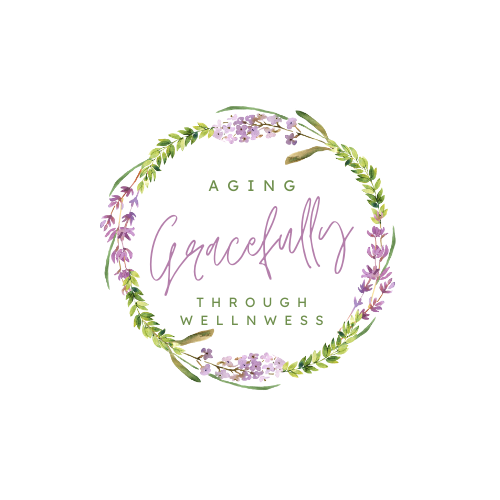### Unmasking Toxins in Daily Life: How to Live a Cleaner, Healthier Lifestyle
In today's fast-paced world, the word 'toxin' seems to pop up everywhere—and with good reason. From the food we consume to the air we breathe, toxins have insidiously woven their way into nearly every aspect of our daily lives. Yet, many of us are not completely aware of the extent to which these harmful substances affect our well-being. Let’s take a closer look at the sources of these toxins and explore practical steps you can take to minimize their impact.
#### Understanding Toxins
Toxins are harmful substances that can cause damage to your body. They can come in the form of chemicals, heavy metals, pollutants, or even naturally occurring compounds. Over time, exposure to these substances can lead to a variety of health problems, including chronic illnesses, weakened immune function, and systemic inflammation.
#### Sources of Toxins in Daily Life
1. **Household Cleaners**: The very products designed to keep your home clean can ironically introduce a significant number of toxins. Synthetic fragrances, ammonia, and chlorine bleach are just a few examples of harmful chemicals commonly found in cleaning agents.
2. **Personal Care Products**: Shampoos, deodorants, and lotions often contain parabens, phthalates, and sulfates, which can disrupt hormones and have other adverse effects on health. Reading labels and choosing natural alternatives is crucial.
3. **Processed Foods**: Many of the convenience foods available today are laden with artificial colors, flavors, preservatives, and genetically modified organisms (GMOs). These chemicals enhance shelf life or taste but may pose long-term health risks.
4. **Pesticides**: Found on non-organic fruits and vegetables, pesticides can linger even after washing. These chemicals are designed to kill pests and, unfortunately, often have toxic effects on human health.
5. **Air Quality**: Indoor air can be just as polluted, if not more so, than outdoor air. Dust, mold spores, volatile organic compounds (VOCs) from paints and furnishings, and even synthetic air fresheners contribute to poor indoor air quality.
6. **Water Contaminants**: Tap water may contain chlorine, lead, and other pollutants. While not all tap water is toxic, it's essential to be aware of what's in your local supply.
#### Steps to Minimizing Toxins
Taking charge of your environment and making conscious choices can dramatically reduce your toxin exposure. Here's how:
1. **Switch to Natural Cleaning Products**: Opt for cleaners that use plant-based ingredients. Essential oils such as lemon, tea tree, and eucalyptus can be powerful allies in detoxifying your home and replacing synthetic cleaners.
2. **Choose Natural Personal Care Products**: Read labels and opt for products free from harmful chemicals. Young Living offers a range of personal care products that are infused with essential oils and made from nature-derived ingredients.
3. **Eat Whole, Organic Foods**: Whenever possible, choose organically grown fruits and vegetables. Consider joining a local co-op or farmers market, or even starting your own garden. Reducing processed food consumption can significantly cut down toxin intake.
4. **Purify Your Air**: Use essential oil diffusers to improve indoor air quality naturally. Oils like purification and lavender not only freshen the air but also have health-boosting properties. Additionally, invest in air purifiers and keep your living spaces well-ventilated.
5. **Filter Your Water**: Use water filters to remove contaminants from your drinking water. This step is crucial in ensuring your hydration source is as pure as possible.
6. **Be Informed and Proactive**: Educating yourself about common toxins and staying informed about safer alternatives is one of the best defenses against them. Engage with communities focused on healthy living for support and shared knowledge.
7. **Detoxify Your Body Regularly**: Support your body's natural detoxification processes by staying hydrated, consuming antioxidant-rich foods, and practicing stress reduction techniques. You might also consider specific detoxifying essential oils like lemon and grapefruit to support this process.
#### The Role of Essential Oils in Detoxification
Introducing essential oils into your lifestyle can offer a natural way to counteract some of the toxins you encounter daily. For instance, lemon essential oil is known for its cleansing properties, while lavender provides a soothing effect that can help alleviate stress—a vital component in maintaining overall health.
Young Living's essential oils are particularly renowned for their purity and potency. Utilizing them properly can enhance your journey towards a less toxic, healthier life. Whether through ingestion, topical application, or diffusion, these oils can be a versatile addition to your wellness routine.
#### Final Thoughts
Eliminating toxins from your life might seem daunting, but it's feasible with small, intentional changes. By becoming conscious of the role toxins play in our modern lives and actively choosing healthier alternatives, you pave the way for a happier and healthier future—for yourself and for those you care about. Remember, , even simple daily changes can lead to significant improvements. It's time to reclaim your well-being, one non-toxic choice at a time.








0 Comments